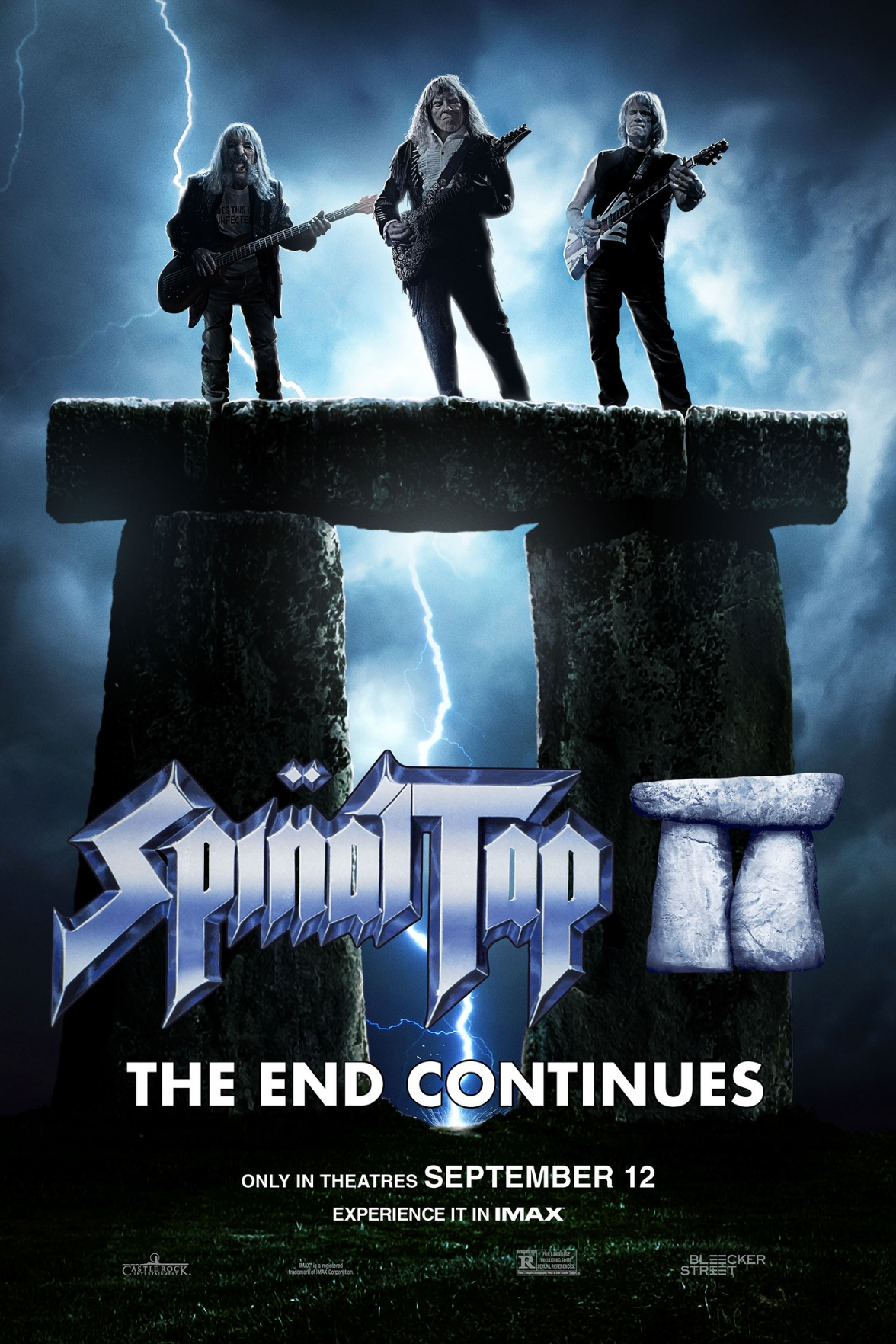Spinal Tap II: The End Continues demanded a big-screen viewing, so I rushed my family out to see it yesterday.
IMAX, no less. Because when Spinal Tap decides to rise from the grave, you don’t watch it on a laptop. You pay for the big screen.
The original This Is Spinal Tap is still the gold standard. Not just the greatest music movie ever made, but the spark that lit an entire genre. Without it, there’s no The Office. No Parks and Rec. Certainly no Modern Family either. Every mockumentary owes its existence to three clueless blokes whose amps went to eleven.
And sure, this is Rob Reiner’s baby. But you can’t talk Tap without mentioning Christopher Guest’s side projects: Waiting for Guffman, Best in Show, A Mighty Wind. Those are basically cousins to Spinal Tap. All deadpan, all savage, all hilarious.
For years I swore there was already a sequel. I remember seeing A Spinal Tap Reunion: The 25th Anniversary London Sell-Out at the video store—packed with Robin Williams, Jeff Beck, Jamie Lee Curtis, Kenny Rogers, Mel Tormé. But that wasn’t a "true sequel". Just a concert. My brain invented a sequel that never existed. Until now.
So how does it hold up? Honestly, I went in skeptical. Sequels to all-time classics rarely work. Lightning usually doesn’t strike twice. But within minutes, I realized they’d pulled it off. Not only is it funny—it’s damn near as sharp as the original.
The fan service is there, sure. You get callbacks, iconic gags, and performances of Tap standards. You get celebrity cameos stacked like pancakes—Paul McCartney, Elton John, Questlove, Garth Brooks. But that’s not the heart of it. Those are garnish. What matters are the jokes, and Tap has always known where to aim.
We start with a “where are they now?” rundown. Nigel Tufnel has left music behind to open a combined guitar and cheese shop—two of his great loves under one roof. David St. Hubbins, naturally, has reinvented himself as a “serious” composer of corporate hold music. And Derek Smalls? He’s curating a glue museum. That’s right. A glue museum.
These men have gone from rock gods to professional eccentrics. And yet, thanks to one last contract buried in their late manager’s files, they’re dragged out of comfortable obscurity to play a final gig in New Orleans.
The premise alone sets up the comedy. These are men too old for the grind, too bitter to get along, and too proud to say no. They argue, they sulk, they fall back into old habits. And still, there’s a spark of that chaotic brilliance that makes them Spinal Tap.
The cameos don’t overshadow them either. A lesser movie would roll out Paul McCartney and bow down in reverence. Not Tap. These guys don’t care if you’re an ex-Beatle. Their egos are too inflated. In their world, they are the headliners—always have been, always will be. That arrogance is what keeps the comedy alive.
And the jokes land. They land hard. Modern updates to old gags—tech failures, music trends they don’t understand, clashes with younger acts—keep the material fresh. The infamous “goes to 11” gag finds new life in a pedal-board bit that had the audience howling. And yes, the Stonehenge fiasco gets its nod, this time bigger and stranger than before.
What really makes it work, though, is the self-awareness. These men know they’re relics. They know the world has passed them by. And the comedy comes from the sheer refusal to let go. They’re not chasing glory anymore. They’re just compelled—by ego, by nostalgia, by stubbornness—to stumble back on stage one last time.
This is why Spinal Tap II is so damn funny. It’s not about reliving past glories or bathing in fan worship. It’s about the futility of holding onto youth, and the absurdity of grown men still squabbling like teenagers in a van. The music is loud, the jokes are sharp, and the band is still a disaster.
Sting once said he’d watched the original film almost fifty times, and each time he wanted to cry because it was too accurate. That’s the legacy of Tap: it’s satire so close to reality it hurts. And the sequel keeps that tradition alive.
So yes—The End Continues delivers. Against all odds, it’s a worthy encore. Maybe the last one. Maybe not. With Spinal Tap, you never really know.
@movies@piefed.social














